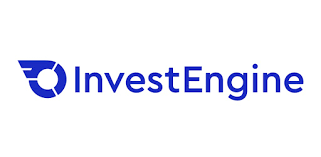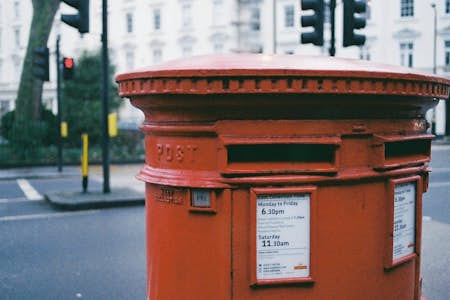Your circumstances and savings goals will impact how suitable different savings products are for you. It may sound counterintuitive, but opening a savings account simply because it has one of the top rates available is not always the best option.
Generally, you’ll have a choice of various ISAs and other savings products like notice accounts, but you may wish to consider things like fixed-rate bonds or pension products. As ever, seeking financial advice from a professional financial adviser can be helpful.
Discover stocks and shares ISAs from the UKs leading providers. Click on your chosen provider to get started!
Issues to consider before opening a savings product
Before opening an account, you need to consider the following:
- What do you want to achieve?
- What is your timeline?
- What are your forms of income?
- Do you want to draw an income from your savings, or do you want to let it grow with interest?
- Do you have a lump sum to invest, or do you want to save regularly?
- How do you want to access your money?
- Do your other savings accounts (if any) mean you earn interest over your personal savings allowance?
- Withdrawal penalties.
- Regulation and protection.
Let's look at these in more detail.
What you want to achieve
You need to think about what you are saving for. If you are saving to supplement retirement income/capital in the future, your needs will be very different than if you are saving to go on holiday next year. What you want to achieve with your savings will affect how long you can lock your money away and how much risk you can take.
Your timeline
In general, the longer you invest, the riskier the choices you can make - but not always. Starting to save early on is one of the best things you can ever do to ensure your pension is as healthy as possible. But what do you do if you are only starting to think about saving now?
It may mean that some of the longer-term savings products are not an option for you, even though you want to make the most of a higher gross interest rate. Now may also be a time that you have less money available as your life insurance premiums may be higher, amongst many other escalating costs that may affect you. Plus, your salary likely has either stopped, reduced or will be stopping soon. When coupled with a shortening timeline, all of these factors have repercussions on what is an attractive savings product for you.
What are your forms of income?
Look at your income and consider where it comes from. For example, is it a set amount each month from a salary? Does some of that salary already go into a pension pot that is looking healthy? Or, are you one of the increasing number of individuals freelancing or working for themselves, meaning your monthly income is bumpy? You may not find some regular saving products suitable if it is the latter. But if you have a stable income with a healthy pension pot, you may want a savings account with a short notice term on it to access your funds quickly.
Do you want to draw an income from your savings, or do you want to let it grow with interest?
When looking at your income, you must also ask what you want from your savings account. Is it only to help supplement your pension? Or do you want to start drawing an income now? Do you want to protect the capital and just reinvest any growth? The answers to these questions can help you decide if a product like a cash ISA vs a Stocks and Shares ISA may be better for you over another type of investment.
Do you have a lump sum to invest, or do you want to save regularly?
Much like looking at your income, if you already have a lump sum of money to invest, some products may suit you better than others. A regular savings account, for example, may offer a high-interest rate, but only on the relatively smaller amounts that you can invest into the account each month. Over the long term, you could earn far more interest by investing that lump sum from the beginning. Or, you could be looking for a regular savings product to make use of your salary income while you still have it.
How do you want to access your money?
This is a much-overlooked idea, but you must know how you want to access your cash. Some of us are well versed in using the internet for all our banking needs. However, for others, it's not that simple. Some of us prefer to go into a branch either regularly or even once in a while to make a withdrawal. Some branch staff may be unable to view online banking accounts, so you must consider what actions you would take if you cannot speak face-to-face with a person about your account.
Do your other savings accounts (if any) mean you earn interest over your personal savings allowance?
Your personal savings allowance (PSA) depends on what tax rate you pay in each tax year. If you are a basic-rate taxpayer, you can earn £1,000 in savings interest per year without paying any tax. If you are a higher-rate taxpayer, you can earn up to £500 in savings interest per year without paying any tax. For additional rate taxpayers, there is no allowance. As a result, you may find that the tax-free savings within cash ISAs are slightly less attractive as you may not have had to pay tax on the interest anyway. However, ISAs still have other attractions, particularly over the long term. Hence, they are definitely worth looking at if you are looking for a long-term savings solution.
Withdrawal penalties
Before opening, you must be aware of any withdrawal penalties on your accounts, particularly notice accounts. How much these penalties are and when you incur them can vary between types of savings and savings providers. Some accounts will require you to stay invested for a certain amount of time before you can withdraw cash without a penalty. Others will require you to save a certain amount each month to receive the maximum interest rate.
However a company structures its savings products, its withdrawal penalties can affect how much you get back should you withdraw before a set period ends. For example, you may withdraw to take advantage of the higher rates available if the Bank of England base rate has increased. Alternatively, you may want to withdraw because you need the money to pay for home improvements. There are a whole range of reasons you may need to withdraw cash from a savings account earlier than anticipated. Knowing the withdrawal penalties before you open an account can help reduce the chance of losing money you can't afford.
Protection
When investigating potential savings accounts to open, check that you choose a regulated provider. The financial industry in the UK is well-regulated, so there really is no need to use an entity that does not offer you protection. The Prudential Regulation Authority and the Financial Conduct Authority (FCA) are regulators of the UK's financial services industry.
If you find a lender offering a higher interest rate than others on the market but don’t recognise them, you can use the FCA register to check who they are. If they’re on the register, they still adhere to all the laws that more well-known brands have to, but you still get to benefit from the higher rate - without worrying that it’s a scam.
There are two more ways the UK industry is set up to help customers. First, there is the Financial Ombudsman Service, which is the organisation that deals with consumer complaints. Then, there is the Financial Services Compensation Scheme (FSCS). This vital scheme protects customers should a bank or other financial institutions fail. It guarantees savings by an individual in a financial entity up to £85,000. So, if you have more than that, you may want to consider spreading your savings to protect them.
Types of savings accounts
Currently, you could save your money in the following:
- A cash ISA.
- A stocks and shares ISA.
- An easy-access account.
- A regular saver account.
- A fixed-rate bond.
- A current account.
Let’s explore the pros and cons of these types of savings accounts.
Cash ISAs
A Cash ISA is a savings account where your cash earns a set amount of interest, free of income tax. The amount you can put in a cash ISA changes yearly and is usually announced during the government's budget.
Pros of cash ISAs
As cash ISAs are tax-efficient accounts, depending on your income tax band, you can save anywhere from 20 - 40% in tax. It’s an important difference as tax-free interest means more money stays in your account in addition to your initial deposit, which increases the compounding effect of what you have saved.
Cons of cash ISAs
The main disadvantage of cash ISAs is that you can only put a certain amount in each year - currently £20,000 across all ISA accounts annually. This amount may be too small for your needs, so you may need to find another vehicle on top of this one. Additionally, cash ISAs have not paid much interest in recent years - though that is increasing now the Bank of England has started to increase the base rate.
Regardless, the lower interest rate may be acceptable for you if you do not necessarily need to see your money grow by vast amounts but need growth to be steady. As a result, it can be a safe bet for your nest egg and tax-efficient.
Stocks and Shares ISAs
Stocks and shares ISAs allow you to invest in different assets, such as stocks, bonds or funds, which can enjoy unlimited gains. The growth earned comes directly from price increases of the individual stocks and share investments within the overall ISA account.
Pros of stocks and shares ISAs
A Stocks and Shares ISA is like a cash ISA in that the interest earned is not subject to income tax. With this type of ISA, you have unlimited growth potential if you invest wisely. Given that growth is not subject to tax, tax efficiency can add up to a huge saving compared to other savings products or investments.
Cons of stocks and shares ISAs
However, the major disadvantage of savings accounts like this is that the value of the money invested may decrease. This may not be something you can risk, especially if you're close to retirement, as you'll have less time to recoup those losses. Additionally, you may be put off by the idea of choosing and managing your investments, which takes time and commitment.
Easy Access Accounts
Easy access accounts from banks and building societies allow you to put money aside for a set amount of interest per year to grow your nest egg. You can withdraw your money with no penalties.
Pros of easy access accounts
Easy access savers can be an excellent place to put funds if you need to get hold of your money quickly and easily. Knowing you have a set rate can be helpful for financial planning. Plus, you are not subject to penalties if you choose to withdraw your funds at any time.
Cons of easy access accounts
However, the trade-off for that easy access is often a meagre interest rate, which may be below what you need. If you are lucky, you may not need a high-interest rate. It may be more vital for you to easily access your savings on a rainy day. We all have car issues or problems with our homes that sometimes need a large amount of cash to cover - and quickly. If all your money is squirrelled away in savings accounts with high withdrawal penalties, you could be putting yourself in a difficult financial predicament. That’s why easy-access savings products still have a time and a place.
However, another disadvantage is that if you have substantial savings to invest, there can be a limit to how much money each easy-access savings account can hold. Therefore, if you have a lump sum you want to grow for an unknown period of time, easy-access savings accounts with low maximum holding amounts can be unsuitable.
Regular saver
A regular saver is for those who want to save a regular amount each month. You earn interest on what you have saved in your account.
Pros of regular savers
They tend to pay a headline interest higher than any cash ISA or easy-access savings product on the market. Plus, a provider’s existing customers may get preferential rates, too - though not always, so do check. Typically, headline rates are only for one year, so moving your money to another account can make sense when the introductory offer ends.
Cons of regular savers
A regular savings account won't usually allow you to invest a large lump sum upfront. This can be a significant disadvantage if you already have a good nest egg built up. But it doesn't stop you from using this type of product. You could pay in money from a pension or income from investments each month instead.
Additionally, you must remember that the interest rate advertised only pays interest on the amount in the account each month. So, while you may be getting 5% on that account, the overall interest you earn over a year might be less than a lump sum in a cash ISA with a lower interest rate.
Finally, regular savers often penalise you if you don't pay anything in during a month. You usually won't receive much interest in a month that you couldn't pay anything into it. If you can't see yourself making those regular payments, your cash will likely earn more in an easy-access savings account.
Fixed-rate bonds
A fixed-rate bond, also known as a fixed-rate savings account, is where you invest your money for a set amount of time and earn interest on the amount saved.
Pros of fixed-rate bonds
One significant advantage is knowing how much of a return you will have on a lump sum over a specified period. Additionally, fixed-rate bonds offer you the opportunity to pick a rate of return that is often higher than an easy-access savings account or even a cash ISA.
Cons of fixed-rate bonds
Your money is locked away for the bond's duration. As a result, as with other notice savings accounts, you will incur severe penalties should you need to withdraw your cash. This can sometimes result in getting back far less than you originally invested. Additionally, the bonds' length may not be suitable for you if you only need cash on a very short-term basis.
Also, fixed-rate bonds like regular and easy-access savings accounts are subject to income tax. This may mean the actual return on investment is similar to a cash ISA.
Current accounts
While every bank or financial institution would place current accounts outside their advertised range of savings accounts, you can still use them to reach your savings goal.
Pros of current accounts
Saving in a current account is easy. Your account is likely already open, so you have already set up your own version of an instant-access savings account. New customers will find that opening such an account is quick and painless, even for those without a current account.
Additionally, you will often benefit from online banking, direct debits, a corresponding credit card, and potentially opening one as a joint savings account with a partner. Having all your income and outgoings flowing in and out of the same place can make your financial situation much easier to manage.
Cons of current accounts
The main disadvantage is you will never get a high-interest rate on a current account - if you get one at all. The best rates are for account holders of one of the above account types. Current accounts rarely pay more than 0% annual equivalent rate (AER). Whether saving for your pension or anything else, you will only get to your target using a savings account or other investment types. Your money will not grow as it would in an individual savings account with a higher rate.
Finally, you may find it easier to separate your savings from your everyday account to achieve your savings goals. The clear delineation of a current vs savings account stops you from spending money you would have liked to have kept for your savings.
Picking the best savings account when you are over 50
Any savings account can suit you, but it depends on your circumstances. If you're unsure of what to do after considering your options and answering all our questions, speak to a financial adviser.
Image Credit: Kindle Media at Pexels







